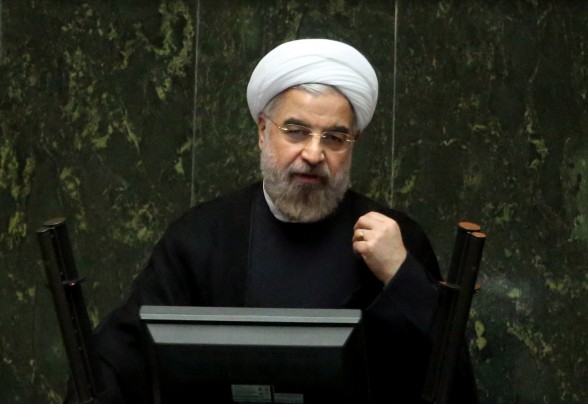The
findings provided a boost to the Obama
administration, which has joined five other major powers
in seeking to negotiate a deal on permanent limits to
Iran’s nuclear program. The report suggests that Iran
has been unilaterally implementing key parts of a
nuclear “freeze” that Western nations have been pursuing
during nuclear talks.
The negotiations are scheduled to resume next week in
Geneva.
News of the apparent slowdown came as President Obama
repeated his appeal to Congress to delay consideration
of further economic sanctions on Iran while diplomatic
efforts are underway.
“Let’s test how willing they are to actually resolve
this diplomatically and peacefully,” Obama said Thursday
at a news conference. “We will have lost nothing if,
at the end of the day, it turns out that they are not
prepared to provide the international community the hard
proof and assurances necessary for us to know that
they’re not pursuing a nuclear weapon.”
The IAEA report is a periodic snapshot of Iran’s
nuclear program by the only group of outside experts
allowed regular access to the country’s nuclear energy
facilities. In recent years, the U.N. agency has
documented a dramatic expansion in Iran’s capability to
make enriched uranium, with the addition of thousands of
centrifuges at its main enrichment plant in Natanz as
well as a smaller, underground facility known as Fordow.
Iran also had been seen making steady progress on a
partially constructed nuclear reactor near the city of
Arak. The heavy-water reactor is ostensibly intended for
medical research and isotope production, but it has
raised proliferation concerns because its spent fuel can
be reprocessed to extract plutonium, which can be used
in nuclear weapons.
The new report shows a sharp drop in activity at each
of the sites, starting around the time that Rouhani took
office. At Natanz, where Iran had been adding
centrifuges at a rate of 600 a month, only four new
machines have been put in place since the summer, the
IAEA report said. No new centrifuges were installed at
Fordow, and work on new reactor components at the Arak
plant appears frozen, the report said.
“It shows that they’re not adding capacity, at least
at Natanz and Fordow,” said
David Albright, a former U.N. nuclear inspector and
president of the Institute for Science and International
Security, a Washington-based research group.
